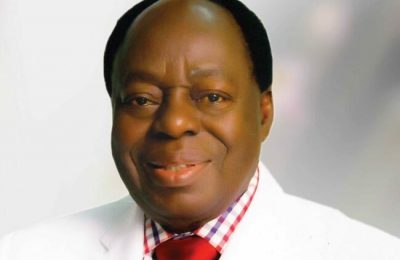
Nigeria, known for its industrious and resilient population, is currently grappling with a troubling decline in productivity, as reflected in its plummeting income per capita.
According to the October 2024 World Economic Outlook of the International Monetary Fund (IMF), Nigeria’s per capita income has fallen drastically, from $3,223 in 2014 to a mere $877.07, as the country faces an uphill battle in translating its demographic strength into sustainable economic growth.

This dramatic decline raises significant concerns about the structural health of Africa’s largest economy, suggesting an urgent need for reforms in policy, human capital development, and infrastructure.
With a population exceeding 220 million, Economist and CEO of CFC Advisory, Tilewa Adebajo, in a telephone conversation with Nigerian Tribune pointed out that the economy is experiencing a sluggish growth rate of just 3 percent, combined with declining productivity and soaring unemployment.
He highlighted the alarming figure of 135 million Nigerians trapped in poverty, with a 40 percent unemployment rate, which underscores the scarcity of job creation and industrial productivity.
Adebajo attributed this low productivity partly to insecurity, particularly in the northern and southeastern regions, which has prevented many farmers from accessing their land.
In 2023, only a handful of economic sectors, such as mining, financial services, and water and waste management, achieved double-digit growth rates, with manufacturing experiencing a negligible growth of just 1.45 percent.
Adebajo argued that despite the sound fundamentals of Nigeria’s economy, poor economic leadership has hindered its potential for growth and productivity, leaving the nation mired in stagflation and hampered by inadequate policy implementation.
Former Minister of Solid Minerals, Dr. Obiageli Ezekwesili, echoed Adebajo’s sentiments, blaming Nigeria’s economic woes on a series of misguided policies enacted by successive governments. Ezekwesili asserted that Nigeria’s gross domestic product (GDP) per capita, which serves as an indicator of citizens’ well-being, has steadily declined, with few signs of improvement.
The former minister lamenting through her official X handle, noted that in 2007, Nigeria’s GDP per capita stood at $1,876, but by 2023 it had decreased to $1,688—a clear indication of the country’s prolonged economic mismanagement.
Her words, “Remember all the times we warned about unsound economic policy direction while administrations and their ignorant allies mocked? The terrible scorecard is here and worsening daily.
“The poorer segment of our population is so undeserving of these consequences of bad governance. That’s the painful reality. And there are now no easy answers”
“So in 2007, seeing that the GDP per capita of Nigeria was US$1,876.41 and 15 years later in 2022, it was US$ 2,162.63, do you know what Nigeria’s GDP per capita was at the end of 2023? Now imagine what Nigeria’s GDP per capita will be by the end of 2024. Is it not obvious how terribly bad, Governance has delivered to Nigerians, “ Ezekwesili attributed.
In drawing a comparison with Singapore, which embarked on its development journey at the same time as Nigeria in the 1960s, Ezekwesili underscored the vast disparity in governance quality between the two nations. While Singapore’s GDP per capita is nearly 40 times that of Nigeria, she believed that this gap is largely due to Singapore’s effective governance, which has successfully harnessed its resources to achieve prosperity. “Poor governance,” she laments, “has delivered a terrible scorecard to Nigerians, leaving the poorer segments of the population to suffer the brunt of these consequences.”
Nigeria’s labor productivity, as measured by GDP per hour worked, is also troublingly low. According to the International Labour Organization, Nigeria’s productivity of $7 per hour is well below that of peers such as Gabon ($26), Botswana ($21), and Egypt ($20).
Temitope Omosuyi, an investment strategist at Afrinvest Limited, pointed out that Nigerian workers face numerous obstacles—such as unreliable electricity, poor internet connectivity, and pervasive insecurity—that stifle their productivity and reduce their overall quality of life.
The National Bureau of Statistics (NBS) reveals that 84 percent of Nigeria’s working population was self-employed in early 2024, reflecting a 3.3 percent drop from the 87.3 percent recorded in the previous quarter.
The NBS further revealed that in Q1 2024, “while the headline unemployment figures may appear positive, the double-digit underemployment rate is a cause for concern. It suggests that a significant portion of the workforce is engaged in low-paying, part-time, or informal jobs that don’t fully utilize their skills or offer job security.”
A British-Nigerian healthcare entrepreneur Dr. Ola Brown highlighted Nigeria’s low productivity by comparing the average hourly wage of Nigerian workers, which she argued stands at US$3.24, with other nations such as South Africa ($19.68), Turkey ($29.34), and the United States ($69).
She illustrated the productivity disparity with an example: if a bakery worker can only produce a dozen donuts per hour, there is a natural limit on their earning potential. In contrast, increased productivity would allow for higher wages and, ultimately, a more prosperous economy.
In a recent report, the Nigerian Economic Summit Group (NESG), observed that essential infrastructure in the country only accounts for 35 percent of GDP, far below the World Bank’s benchmark of 70 percent. This infrastructure gap limits the productivity of key sectors and hampers overall economic growth, despite significant capital investments in recent years it stated.
Similarly, Kalu Aja, Lead Consultant at the ECOWAS Commission, noted that while 100 farmers in the Netherlands can produce sufficient food for export using advanced technology, 10 million Nigerian farmers, working primarily with hand tools and reliant on unpredictable rainfall, struggle to meet domestic food demand.
Aja argued that Nigeria’s leaders should prioritize investments in agricultural infrastructure—such as tractors for farming —over luxury expenditures for politicians, as a means to generate sustainable wealth.
“More labour in Nigeria, yet poorer Why? The labour in Nigeria is not productive.
“100 farmers in the Netherlands generate more food for export than 10 million farmers in Nigeria Why? The 100 Dutch farmers use tractors, greenhouses and drip tech, they grow tomato all year round, with no pests, bandits, diseases or disasters, then they export and farmers get wealthy.
“The 10 million Nigerian farmers use hoes and rainfall, crop yields are low, plants die due to pests, bandits kill, floods happen. The farmers have no excess for export, they don’t get as wealthy. Maths then helps the Dutch, with more wealth from agriculture, their export earnings go further in their smaller family, so generational wealth is created.
“Maths hurts the Nigerians, with less wealth for a larger population, then population becomes a burden, generational transfer of extreme poverty occurs. Nigerians must grow productivity.
“Imagine if instead of buying an SUV for each House Member, Nigeria instead bought a tractor for their constituency. That’s how wealth is created, tractors not SUVs, “ Ajah commented on his X handle.
Moreover, high levels of corruption further impede productivity, argued public affairs analyst Tochukwu Mana. He explained that nepotism and political connections often influence employment decisions, leading to an unmotivated workforce and weak service delivery.
It is believed in certain quarters that many Nigerians spend significant time and energy navigating challenges like traffic congestion, security threats, and infrastructure breakdowns—none of which are factored into productivity statistics but have a profound impact on workers’ output and well-being.
A recent study by the Penn World Table, a comprehensive dataset from the University of California, ranks Nigeria as one of Africa’s least productive nations, trailing countries like South Africa, Egypt, Kenya, and Morocco. This low productivity ranking reflects Nigeria’s limited investment in human capital, which the Penn World Table measures through the knowledge, skills, and experience of the workforce.
South Africa, for instance, boasts a human capital index score of 2.9 percent, while Nigeria’s score lags considerably behind.
Experts agreed that Nigeria’s productivity dilemma is rooted in a combination of governance failures, inadequate infrastructure, and widespread insecurity. Without substantial reforms in these areas, Nigeria’s potential for economic growth will remain stifled, leaving its large population to bear the brunt of poverty and underemployment. As Dr. Ezekwesili warned, the consequences of poor governance are now manifesting in Nigeria’s daily reality, with little relief in sight for the most vulnerable citizens.
Moving forward, Nigeria must address these deep-seated issues through evidence-based policies, enhanced investment in human capital, and a commitment to building critical infrastructure.
Only then can the nation harness its demographic potential and achieve sustainable economic growth, lifting millions out of poverty and paving the way for a more prosperous future.
READ ALSO: How I would have solved Nigeria’s problems as president — Atiku







